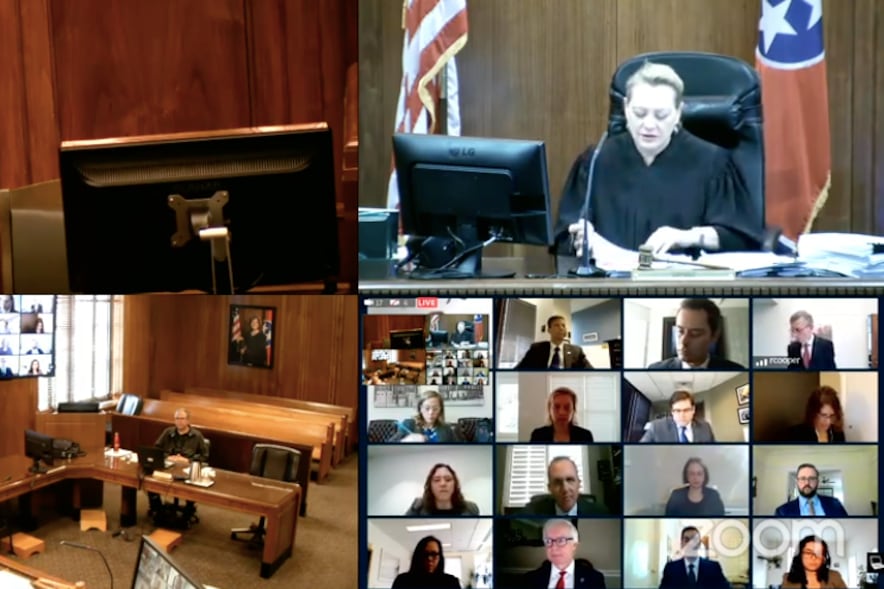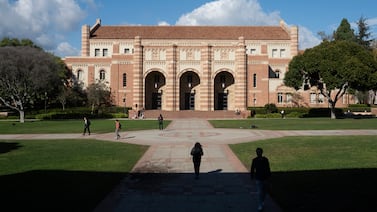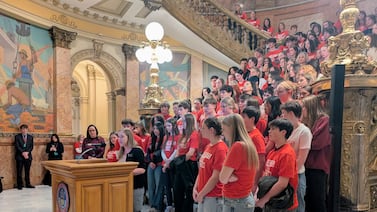A Nashville judge ruled Monday that Tennessee’s school voucher law is unconstitutional and ordered the state to halt the controversial program before it starts this fall.
Chancellor Anne C. Martin said the legislature violated the state constitution last year when it passed an education savings account law that affects only students in Nashville and Memphis, where local officials have consistently opposed vouchers.
“There is no dispute that the qualifications were tailored, through multiple amendments, to only include those two school systems, and that bill sponsors could only secure passage from representatives against the bill if their district school systems were excluded,” Martin wrote in her ruling.
The decision is a major victory for Davidson and Shelby county governments as well as the state’s two largest school districts. Shelby County Schools and Metropolitan Nashville Public Schools stood eventually to lose thousands of students and millions of dollars if eligible families opted to shift taxpayer funding from public to private schools for their children.
“Nashville, like other cities and counties, must have the authority to determine how investments are made in the best interest of our residents,” said Mayor John Cooper, whose administration joined Shelby County government and Metropolitan Nashville Public Schools to sue the state.
“We, of course, do not feel that vouchers are a solution for improving public education,” Cooper added, “and will continue to advocate for both our MNPS students and educators.”
The ruling is also a significant loss for Gov. Bill Lee’s administration, which pushed the bill through the House of Representatives after that body had rejected similar proposals for years. While campaigning for office, the Republican governor had promised to give parents more education choices for their children.
“We strongly disagree with the court’s ruling and will swiftly appeal on behalf of Tennessee students who deserve more than a one-size-fits-all approach to education,” said Gillum Ferguson, Lee’s press secretary.
At the governor’s direction, the program was set to start this fall, a year earlier than required by statute. As of last week, 52 private schools were approved to participate, and about 300 applications from families appeared to be on track for approval for 5,000 available spots. State officials said recently they expected about 500 students would participate in the first year, with plans to expand the program eventually to 15,000 students.
The leaders of several pro-voucher groups that joined the legal battle said the ruling will create confusion for families hoping to participate.
“This is an extremely disappointing decision, and unfairly penalizes the thousands of families who were hoping to utilize the ESA program,” said Shaka Mitchell, Tennessee director of the American Federation for Children. “We urge the attorney general to take the necessary next steps to appeal, defend, and protect the program.”
Beacon Center CEO Justin Owen said his group “will do everything we can to fight on behalf of families all the way to the state Supreme Court to ensure that they are able to participate in this program this fall and beyond, just as Gov. Lee and the legislature intended.”
But voucher opponents praised the judge’s ruling.
Shelby County Schools Superintendent Joris Ray called the outcome “excellent news” for public education and education equity.
And Nashville’s law director, Bob Cooper, called it “an important ruling” for local governments. “It reaffirms the constitutional right of counties and cities to be free of state legislation that targets select jurisdictions without their approval,” said Cooper, a former state attorney general who argued the case on behalf of Davidson and Shelby counties.
In her order, Martin authorized the state to take its case to the Tennessee Court of Appeals if the attorney general chooses. However, it would be up to that court whether to consider the appeal.
A spokeswoman for Attorney General Herbert Slatery III confirmed Tuesday that the state will appeal Martin’s ruling.
At issue is the constitution’s so-called “home rule” provision that prohibits the legislature from passing laws that single out individual counties unless approved by two-thirds of the members of those counties’ legislative bodies, or a majority of voters.







